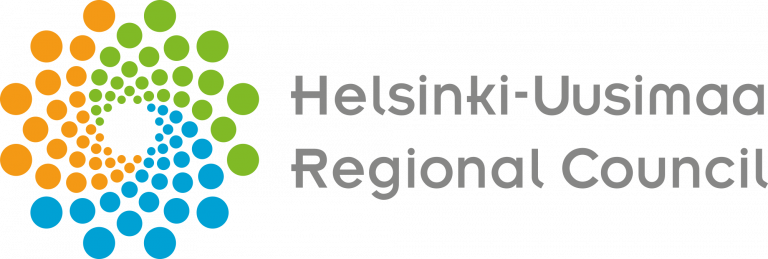Helsinki-Uusimaa Circular Valley
Updated on 03.09.2024
The Helsinki-Uusimaa Circular Valley initiative is a platform of various innovation actors working together to create systemic change to establish a circular economy (CE) in the region led by the Helsinki-Uusimaa Regional Council in Finland.
CE is a great opportunity for Helsinki-Uusimaa, both in terms of sustainable development and business. Most of Finland's material flows are generated in the region, which has the largest population of any region in the country. Also, the strong research, development and innovation (RDI) sector in Helsinki-Uusimaa is developing new and innovative CE solutions.
Circular Valley is being developed in close cooperation with member municipalities, the government, the business sector, universities and research institutions, as well as with civic organisations.

More information
CE is one of the priority themes for the region, as stated in the Regional Program, Smart specialisation strategy and the Climate-neutral Helsinki-Uusimaa 2030 Roadmap.
Leading the Circular Velley initiative, the Helsinki-Uusimaa Regional Council is a joint regional authority of 26 municipalities in the Helsinki-Uusimaa Region, as mandated in law. The Council’s tasks include regional land-use planning. In addition, the Council articulates common regional needs, long-term development goals and conditions for sustainable development.
Urban rural predominance
Predominantly urban
Circular Systemic Solution
‘Helsinki-Uusimaa Circular Valley: Co-creating new value chains to harness regions’ innovative energy’
The Helsinki-Uusimaa Circular Valley is a collaborative network that brings together experts, forward-thinking companies and dynamic organisations from different fields and municipalities. The Circular Valley’s mission is to bring these diverse stakeholders together to exchange ideas, knowledge and networks, all with a single goal in mind: co-creating new value chains for the CE.
Helsinki-Uusimaa Circular Valley aspires to be the driving force behind unleashing the innovative potential of SMEs and other essential players. The pilot’s aim is to champion the transition to a CE, and its plan to achieve this is primarily by developing pilot projects and scaling up solutions, creating opportunities for green businesses to thrive.
Objectives
- Contribute to the climate neutrality/circular economy objectives of the 2030 Roadmap.
- Improve the innovative potential of the region and entrepreneurship to help transition to CE in the focus sectors by co-creating collaborations between different sectors.
- Kick-start and facilitate collaboration through pilot projects.
Systemic nature
The Circular Valley targets multiple sectors – initially including construction, plastics, textile, electronics and food sectors – and may later expand to encompass all sectors and value chains as a cross-cutting entity. It engages a broad range of stakeholders, including private businesses, experts, academia, and technological organisations. Circular Valley addresses multiple dimensions of circular economy policymaking, such as governance, finance and innovative business models, with impacts on multiple policy fields, in particular on climate neutrality and circular resource management. Additionally, it aims to create new jobs and create equal representation of women in these roles, contributing to positive social impacts.
Expected impact
The positive impact primarily relates to climate and resource productivity gains, as well as well social benefits. However, they are not quantified with KPIs yet. The qualitative impact includes the creation of new value chains and collaborations between stakeholders, fostering trust between them.
The Circular Economy in the city/region
Link to existing circular economy strategy and/or action plan
Circular economy is addressed through two main strategies. The Regional Climate Roadmap has six main ‘spearheads’ with two integrating circular economy goals: sustainable production and consumption; and climate-neutral circular economy.
The recently adopted Helsinki-Uusimaa Regional Programme also includes priorities directly relevant to the circular economy. It emphasises resource-smart solutions to consolidate the region’s pioneering role in the transition to circular economy through innovation and skills development, with a specific focus on sectors such as food.
Leading organisation(s)
- Helsinki-Uusimaa Regional Council
- EU-Relations Unit
- Circular Economy Unit
Participation in other relevant initiatives
- Regional Innovation Valleys
- Member of the Cities and Regions Advisory Panel for the Hubs for Circularity project
- Baltic Sea Region, such as the Baltic Sea States Subregional Co-operation
- Helsinki City is one of the 112 Mission Cities under NetZeroCities
- Regional Innovation Valleys
- Member of the Cities and Regions Advisory Panel for the Hubs for Circularity project
(Other) Key Resources




